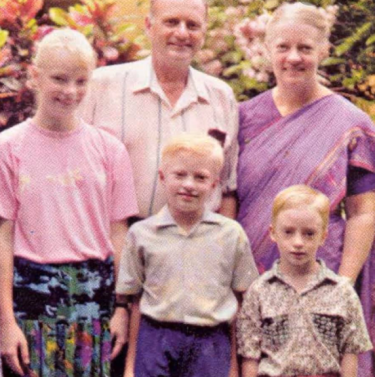
An Indian man serving life imprisonment for his involvement in the 1999 murder of Australian missionary Graham Staines and his two young sons has reportedly become a Christian during his time behind bars.
Mahendra Hembram was convicted for his role in the brutal attack on Staines, Philip (aged ten) and Timothy (aged seven), who were beaten and set alight while asleep in their vehicle in Odisha. He received a life sentence in 2003. An accomplice, Dara Singh, was also convicted for the brutal killings, while others were acquitted or received lesser sentences.
Prison officials confirm that Hembram, now in his fifties, embraced Christianity during his 25-year incarceration, citing personal reflection and transformation. On his release from a jail in Keonjhar, Odisha, he was commended for good behaviour and given a ceremonial farewell by prison staff.
News of his conversion has stirred complex reactions among Christian communities. A local Catholic priest and human rights advocate in Odisha described the moment as deeply unsettling, questioning how someone convicted of such a horrific crime could become a symbol of faith. Others expressed concern that his release and transformation could send mixed messages about justice, forgiveness and reconciliation.
Hembram has publicly maintained that he was wrongfully implicated in what he calls an “incident related to religious conversion”. Court records show he once confessed to involvement in the killings in 2002, but later recanted his statement. On the day of release, he again claimed his innocence, stating he spent decades in prison without justification.
The killings of Staines and his sons shocked both India and the wider international community, bringing widespread condemnation. At the time, Staines was engaged in medical and leprosy care among tribal communities, and continued his work alongside his wife, Gladys, despite opposition. Their deaths prompted national debate over religious freedom and the rising influence of religious nationalism.
India’s high court upheld Hembram’s life sentence in 2005, and the Supreme Court confirmed it in 2011. He was released under Odisha’s remission policy, which allows early release for life prisoners showing good conduct after serving a minimum term—typically 20 to 25 years.
Christian leaders remain divided over the implications of his conversion and release. Some argue it highlights the power of grace and redemption, while others worry it risks sending the wrong message about accountability for religiously motivated violence.
Rewritten from UCA News.




